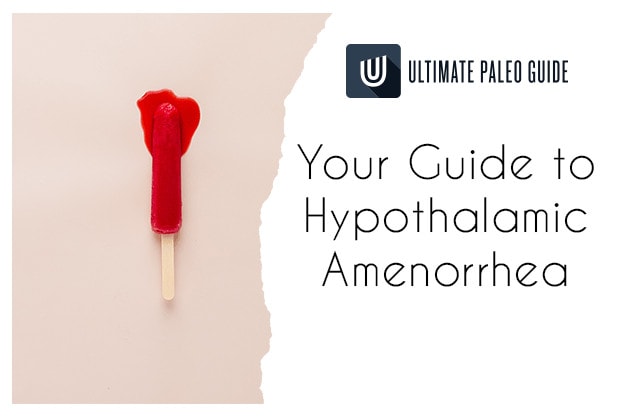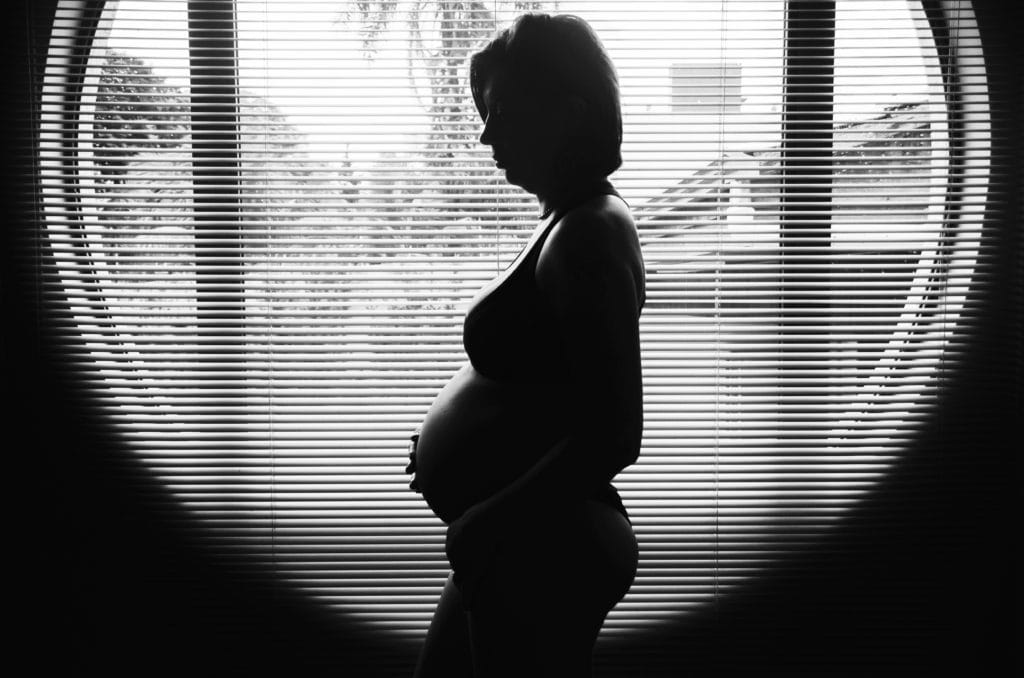
Have you ever been so healthy that you unintentionally make yourself sick? Much as we’d like to believe the opposite, working too hard on your health can have unpleasant and even dangerous consequences.
Hypothalamic amenorrhea is just one example of how sometimes we take things too far. Missed menses aren’t always an indicator of underlying health problems, but every woman knows the fear of an unplanned no-show.
Fair enough, it could be a number of other things—pregnancy, aging, or changes in your cycle, but it’s best not to assume that all is in order.
Poor habits in diet, exercise, and lifestyle could affect your menstrual cycle. Your body might be telling you to slow down. How can you be sure? Here’s a good look at this condition, so that you’ll know what to look out for, and how to correct it.
Table of Contents
A Breakdown of Hypothalamic Amenorrhea
Hypothalamic amenorrhea might sound like a complicated way to say that you’ve missed your period but it’s not that simple. There are significant differences between an unstable period, a single missing period, an extended disruption in your cycle, or one that stops altogether. Before we get into that, let’s look at the specifics.
What is Hypothalamic Amenorrhea?
Amenorrhea is a general term that describes the absence of a woman’s period. In the first kind, primary amenorrhea, a woman hasn’t gotten her period yet by age 16. In the second kind, secondary amenorrhea, she has missed her otherwise regular period for three or more consecutive months.
In both cases, it’s caused by irregularities or abnormalities in hormone production. Hypothalamic amenorrhea is often responsible for the second type, and it’s caused by a disruption in a specific hormone: gonadotropin-releasing hormone (GnRH).
GnRH is pulsated through your body every hour or so. It’s necessary for healthy egg development and is also in charge of peaks in estrogen production. It’s vital for reproduction, and so plays an important role in your menstrual cycle.
Hypothalamic amenorrhea occurs when your hypothalamus malfunctions, and stops receiving the signal to release GnRH. This impacts your entire menstrual cycle and prevents your period from continuing.
Causes

There are a few causes of this condition but they all boil down to the same thing.
Hypothalamic amenorrhea happens when your body has insufficient calories to trigger hormone release.
It’s most prominent in people who have strenuous lifestyles—athletes, ballet dancers, and those with eating disorders. Still, women outside of that demographic are still at risk. Hypothalamic amenorrhea is also linked to otherwise healthy lifestyle changes.
Below are more potential causes of it.
Too Much Exercise
Obsessive exercise can harm your menstrual cycle. This is why hypothalamic amenorrhea is so often found in women who are extremely active and athletic. There are two reasons for it.
Changes in your body fat can disrupt your cycle, and exercise limits production of leptin. Leptin is a hormone that regulates energy in your body, by controlling your appetite. If your body fat decreases, less leptin is released. This imbalance causes your hypothalamus to restrict GnRH production, and this leads to hypothalamic amenorrhea.
Half of all women who frequently exercise experience irregularities in their menstrual cycle.
Poor Diet
This often goes hand in hand with the effects of exercise. Since your hormone production relies on healthy calorie intake, what (and how much) you eat can affect your whole body.
This is also the reason why women with eating disorders (most commonly anorexia) will develop hypothalamic amenorrhea.
While it’s perfectly okay to want to eat healthily and watch what you eat, some women do so incorrectly. Rather than consulting a physician before undertaking a new regimen, they’ll choose to go at it alone, often without the knowledge to do so safely.
There’s also the problem of fad diets, which some women follow obsessively to their detriment. Many of these diets don’t only starve you of calories, they deprive you of nutrients too.
It’s not always dangerous decisions that are to blame though. Restrictive diets or lifestyles (like veganism) can also disrupt your cycle and lead to hypothalamic amenorrhea.
Stress and Mental Disorders
Stress causes a number of imbalances in your hormones, the most prominent being that it causes an influx of cortisol. Cortisol has the capacity to flush out or inhibit your healthy hormones. It can also reduce the level of GnRH that your hypothalamus releases.
There are two sides to this coin though. Stress is often to blame for unwise lifestyle choices. It can interfere with your diet, sleep, and exercise which can worsen the problem.
The same applies to mental disorders. Anxiety and depression are culprits here too. They disrupt your hormone production and can prevent you from taking care of yourself.
Natural Causes
It’s not all doom and gloom. Hypothalamic amenorrhea can also be caused by natural changes in your body and hormones.
Pregnancy is the most obvious example. It’s only natural that once ovulation has served its purpose, GnRH production will halt. This is why pregnant women lose their periods when they’re carrying a child.
Menopause is another example. Your reproductive process as a whole shuts down when you reach a certain age, and your body will no longer produce the hormones necessary for it.
Contraception
On the other side of the spectrum, preventing reproduction can trigger hypothalamic amenorrhea. Contraception (including birth control pills, injections, and implants) might cause your period to vanish for a while.
It’s no surprise. Contraception’s entire purpose is to prohibit reproduction, so the hormones responsible will be affected.
Medication
Chronic, or prescription medication can also change your hormonal balance and inhibit GnRH. The common culprits are antipsychotics, antidepressants, allergy medications, blood pressure medication, and chemotherapy.
Illness
Certain illnesses are known to interfere with your period too. This includes:
- Polycystic Ovary Syndrome: a disorder that affects feminine hormone production.
- Pituitary adenoma: A condition in which affected women develop non-cancerous growths in their pituitary glands, causing irregular menstruation.
- Thyroid disorders: Hyperthyroidism and hypothyroidism can also inhibit GnRH release.
Biology
Sometimes it’s not external factors that trigger hypothalamic amenorrhea. Biological problems with your reproductive organs could be the problem.
Abnormalities in the vagina can prevent a healthy menstrual cycle. So can uterine scarring and an underdeveloped reproductive system. Abnormalities in your cervix or uterus could also be at fault.
Symptoms
The most telling symptom of this condition is a missing period for three or months. If your menses have stopped and you experience any of the following, it’s a good idea to consult a doctor.
- Acne
- Anxiety, depression, or other changes in your mood and mental health
- Blurry vision or changes in your eyesight
- Excessive hair growth, especially facial hair
- Hair loss
- Headaches
- Increased appetite
- Insomnia or other sleep disorders
- Lethargy
- Low libido
- Nipple discharge
- Pelvic pain
Complications

Hypothalamic Amenorrhea doesn’t only affect your menstrual cycle or reproduction, it can affect other areas of your life and health too.
It’s been linked to bone loss and osteoporosis, due to a deficiency in estrogen. It can also lead to a number of other problems including heart disease and digestive troubles. It can affect your sleep, which in itself can lead to other problems like exhaustion, stress, mood disorders, and impaired cognitive ability.
It affects your sexual health and drive as well. It can also impact your appearance by causing dry skin and damage to your skin and nails.
The bright side is that these side effects are reversible. If hypothalamic amenorrhea is corrected, these will fall away with it.
Hypothalamic Amenorrhea and Pregnancy
Unfortunately, no. Infertility is another complication of this disorder. Your body will not produce enough (or any) of the necessary hormones that enable pregnancy. This is still a temporary side effect in most cases and will be corrected once the condition is overcome.
Even though it’s not possible to fall pregnant naturally if you struggle with hypothalamic amenorrhea, you can still opt for fertility treatments. These are more effective if you’re already recovering, and it’s not recommended to do these treatments without necessary changes to your lifestyle.
Are You at Risk?
Honestly, the only people who are not at risk here are men. All women are susceptible to it at some point in their life, though it will only be a problem between your teen years and menopause.
By age 16, a girl should have a healthy cycle. That said, it’s a myth that teens are susceptible to irregular periods. No matter your age, if you should have a normal period and you don’t, the problem could be hypothalamic amenorrhea.
Lifestyle, as mentioned, could also increase your chances of developing this disorder. If you’re an athlete, or athletic performer (an acrobat, dancer, or figure skater, for example), you are at an increased risk. Health fanatics should also watch out, especially if you exercise or diet frequently or vigorously.
There’s also genetics, as is the case with most disorders. If women in your family are prone to hypothalamic amenorrhea, you probably are too. Check your family history.
Diagnosing Hypothalamic Amenorrhea
Hypothalamic amenorrhea will be diagnosed by exclusion. This means that all other possible causes of your missed menses will be investigated and eliminated before this condition is considered. This includes pregnancy, menopause, and perhaps even infertility.
The only way to be sure about it is to consult a doctor or physician. Your practitioner will use a number of methods to eliminate the others and diagnose you.
You might be subjected to an ultrasound and blood tests. You will also have your weight and BMI checked. Your doctor will interview you about your lifestyle and mental health too.
How to Correct Hypothalamic Amenorrhea

It’s important to remember that this condition is not a death sentence, nor is it a permanent problem. With some determination and informed lifestyle decisions, you can manage it, overcome and reverse each of its complications.
Change Your Diet
Chances are you’re not taking in enough calories. If your menses were disrupted after taking on a new diet, discontinue it. It’s best to follow a diet plan that does not restrict or cut out any food group.
You should stick to a well-balanced and wholesome diet that ensures you will receive all the essential nutrients and minerals, as well as your daily required calorie allowance. This isn’t something that is set in stone, though. Your best bet would be to consult a physician or dietician to figure out your individual needs.
Control Your Fitness
As with diet, you will probably have to make alterations to your fitness plan too. Again, this is something that you will have to figure out for yourself, though consulting a professional will help. You might have to drastically reduce the amount of exercise you participate in, or simply lower its intensity.
One thing to keep in mind is that some women think that they can simply increase their caloric intake while maintaining their exercise frequency or intensity. This is not the case.
If exercise is to blame for your missed cycle, you will have to change it. Diet and fitness have different effects on you, and changing one won’t solve problems caused by the other.
Relax
Combating stress will make a big difference in your life, so take some time for rest and relaxation. Yoga is a great solution if you don’t want to give up exercise completely, as are leisurely activities, like walking.
Meditation will help you relax too. Try your best to have a healthy and regular sleep rhythm, and put an effort into switching off as often as you can manage.
You Will Be OK
Hypothalamic amenorrhea sounds terrifying. Serious as it may be, it’s not life-threatening, and as long as you commit to correcting it, it won’t have a lasting effect on you.
Health and fitness are important parts of our lives, but we can go overboard every now and then. Hypothalamic amenorrhea is your body’s way of telling you to slow down so that you’ll be healthier and happier.
It’s nothing to be ashamed of. You’ll be right as rain in no time.